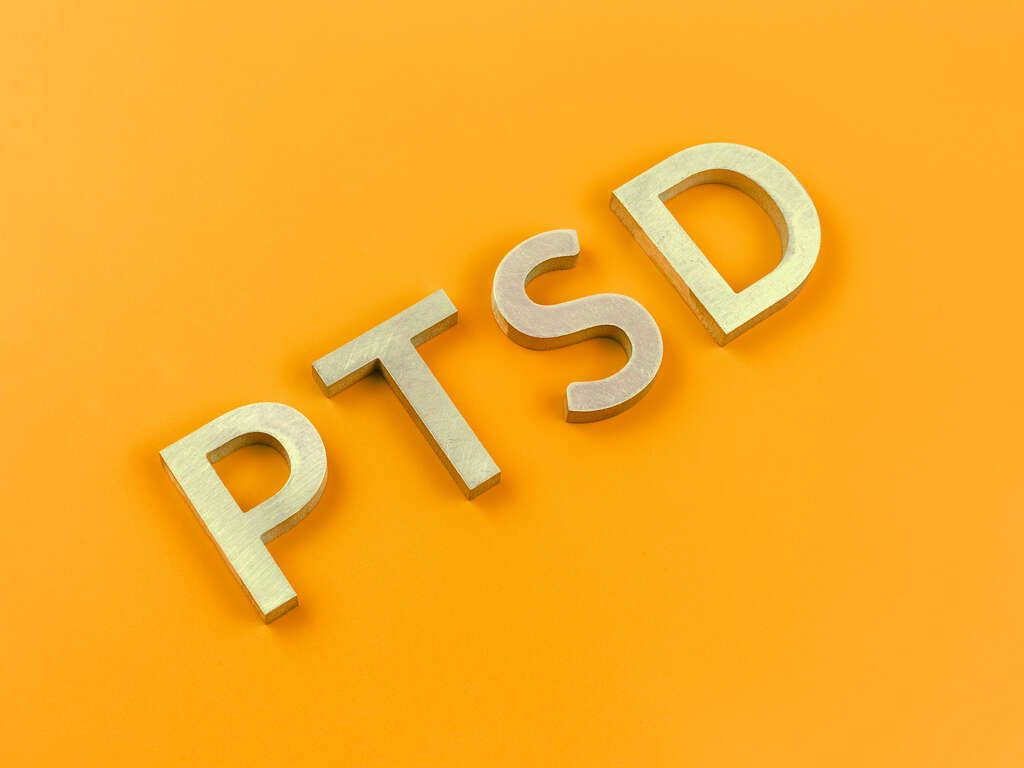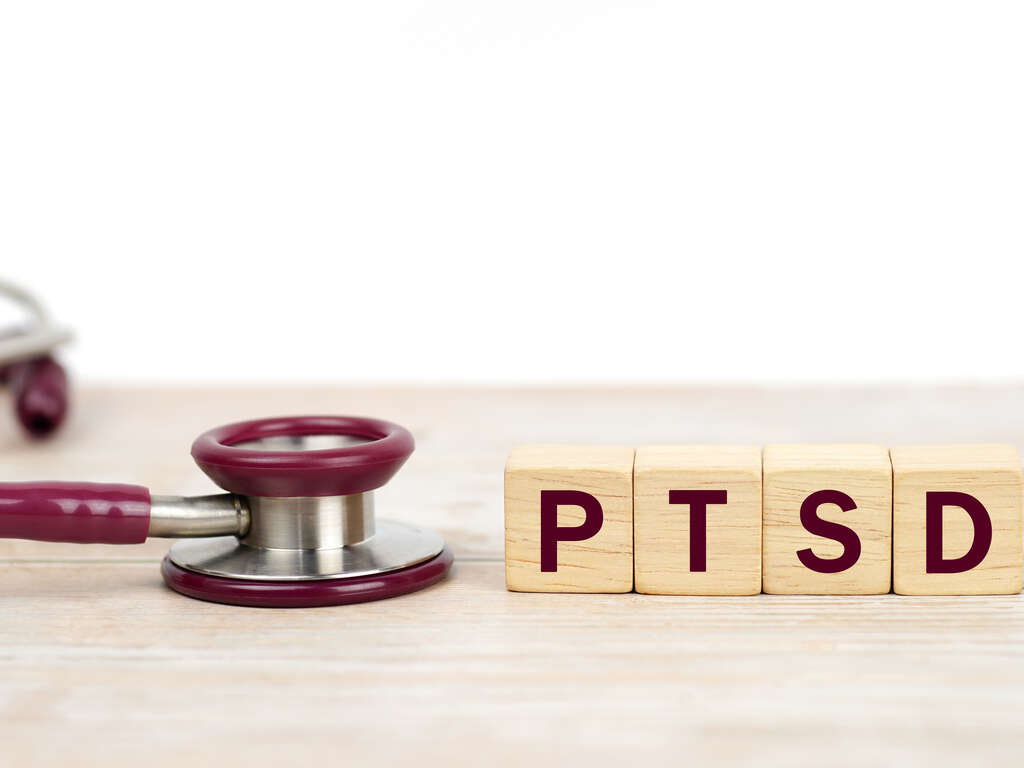PTSD Awareness Month is an opportunity for raising awareness and to educate the public about the risks of PTSD and the resources available to those who have experienced trauma. Every June is PTSD Awareness Month and includes events, observances, and other activities that raise awareness about post-traumatic stress disorder (PTSD) and educate people about how to prevent it. PTSD Awareness Month also provides information on where to find professional help and effective treatments for those experiencing PTSD.
Help to Raise PTSD Awareness
Most people with PTSD do not get the help they need. Even though PTSD treatments work, physical abuse, physical assault and sexual assault are often underreported. PTSD Awareness month is every June, and Turning Point of Tampa is helping to spread the word that effective PTSD treatments are available.
Approximately 8 Million People in the United States Have PTSD.
Throughout the world, sexual assault, serious accidents and natural disasters, effect Veterans or civilian survivors. Together we can participate in PTSD awareness month and recognize PTSD treatments really work and can lead to a better quality of living.
PTSD National Center for PTSD

The United States Department of Veterans Affairs has the National Center for PTSD support. Every June is PTSD Awareness Month with objectives to raise awareness, get support for those with PTSD and families with a member suffering with PTSD.
Turning Point of Tampa has Made the PTSD Awareness Pledge
The PTSD awareness pledge is a simple form asking about you as an individual or your organization. The VA wants not only individuals to make this pledge but also businesses that are local, regional or national.
PTSD Awareness Categories
You begin the PTSD Awareness pledge by choosing the category that best describes you:
- Individual
- Organization, agency or business
- VA employee
- VA team, clinic or health care facility
Do you or does your organization provide health care services to Veterans?
The form will also inquire about the resources you offer to Veterans. Turning Point of Tampa offers PTSD treatment options for those who also have a co-occurring condition with substance abuse. Turning Point of Tampa has been treating veterans and civilians who have addiction or eating disorder issues for over 35 years.
“STEP UP” for PTSD Awareness Month
Step Up is a virtual walk hosted by the National Center for Posttraumatic Stress Disorder. We all know not everyone loves to walk, but this is an easy way for an individual to show PTSD awareness month matters.
All that is needed to complete the virtual walk:
Complete 30 minutes of exercise at any time during the month of June in recognition of PTSD Awareness Month.
Register for the walk
Download and print the Step Up for PTSD Awareness Virtual Walk bib
Pin on your bib and get moving
Take a photo of yourself doing a physical activity, such as walking, running, biking, rolling, or swimming
Post your photo on social media and tag the National Center for PTSD
You can post to social media here:
Facebook – https://www.facebook.com/VeteransAffairs
Twitter – @DeptVetAffairs
Instagram – deptvetaffairs
Social Media links are found at the bottom of the National Center for PTSD website page.
National PTSD Awareness Day – June 27, 2022
In 2014, the entire month of June was designated National PTSD Awareness Month by the United States Senate. This year PTSD Awareness Day is recognized on June 27, 2022.
What is Post-Traumatic Stress Disorder?
Post-traumatic stress disorder is a mental health condition that develops in some people who have experienced a traumatic event, such as military combat on or off the front lines, sexual assault, physical assault, a serious accident or a natural disaster. A person with post-traumatic stress disorder may relive the upsetting memories through nightmares and flashbacks or have difficulty sleeping and concentrating, and experience feelings of isolation.
The Term “PTSD”
The term “PTSD” was coined in 1980 by psychiatrist Dr. Robert Jay Lifton to describe a set of symptoms that he observed in Vietnam War veterans who had been exposed to extreme trauma while serving overseas. The term is an acronym which stands for “post traumatic stress disorder”. In 1980, the American Psychiatric Association (APA) added PTSD to the third edition of its Diagnostic and Statistical Manual of Mental Disorders (DSM-III).
PTSD Can be Diagnosed After One Occurrence
PTSD can be diagnosed after one occurrence of trauma or through a series of occurrences. It is important to get help if you think you could develop PTSD from a recent serious accident or sexual assault. The pain that a PTSD survivor experiences can be co-occurring with mental disorders or medical issues such as irritable bowel, sleep disturbance, depression or alcoholism and addiction.
Effective Treatments to Manage PTSD Symptoms
At Turning Point of Tampa during our initial interview to help someone find the right resources to begin the recovery process, we ask if there has been a recent crisis. Any lasting mental or physical symptoms from a crisis does not mean someone will develop PTSD, but could give insight into the type of PTSD treatments that will be most effective. Trouble sleeping from upsetting memories coupled with a substance use disorder are symptoms that are treatable and could lead to finding the person is experiencing PTSD. We find trauma often occurs with Veterans and civilians seeking help for addiction and or eating disorders. The Turning Point of Tampa clinical staff are trauma therapists that have been trained in therapeutic modalities to treat those who experience PTSD.
PTSD Symptoms

Symptoms of PTSD include nightmares and intrusive thoughts. Some may also experience intense anxiety, panic attacks or mood disorders. It is common to have trouble sleeping or concentrating.
- Traumatic events can cause recurrent and unwanted distressing memories
- Severe emotional distress or physical reactions to something that reminds you of the traumatic situation
- Angry outbursts, extreme anger or easily startled
- Anxiety or depression
- Trying to avoid thinking or talking about the traumatic events or “feeling stuck”
- Lack of interest in activities you once enjoyed in your daily life
- Avoiding places, activities or people that remind you of a traumatic event
- Reliving the traumas as if it were happening again (flashbacks)
- Feeling detached from friends and family
Addiction and Treatments for Veterans
Veterans in the residential treatment program at Turning Point of Tampa can take advantage of peer support programs and the structure of the 12-step methodology to achieve sobriety or manage eating disorders. The Turning Point of Tampa residential program team understands a veteran‘s suffering. Our staff and facility provide a safe environment for all veterans to begin the recovery process. Through addiction education, behavioral health treatments, and learning to have lives in recovery, Veterans face crisis and other traumatic events without alcohol, drugs or eating disorder behaviors.
What is a Traumatic Event?
A traumatic event is an event that causes psychological trauma. An individual who experienced the trauma can suffer from PTSD. Events that are traumatic are often described as disturbing, shocking, or terrifying. They often involve the death of a loved one, serious injury to oneself or another person, or a threat to one’s physical integrity.
Military Veterans and PTSD
Military veterans are at risk for developing PTSD. Military combat or other life-threatening circumstances can cause flashbacks, nightmares, and severe anxiety. Treatable trauma begins with addressing the event. Treatment options for Veterans can be through the VA or a private facility like Turning Point of Tampa.
You Can Change Your Life Today
Turning Point of Tampa offers services for addiction treatment. It can be difficult to find treatment facility options. Suffering from substance abuse and co-occurring disorders and finding an alcohol rehab treatment facility that understand both veteran affairs and civilian life are critical when choosing the best rehab center.
Complex PTSD
Complex PTSD also known as C-PTSD is caused when an adult or child has experienced repeated trauma such as physical abuse or neglect.
PTSD Awareness
The Department of Veterans Affairs is committed to raising PTSD Awareness every June in the United States. It is estimated that 20% of Iraq and Afghanistan veterans will experience PTSD in their lifetime.






